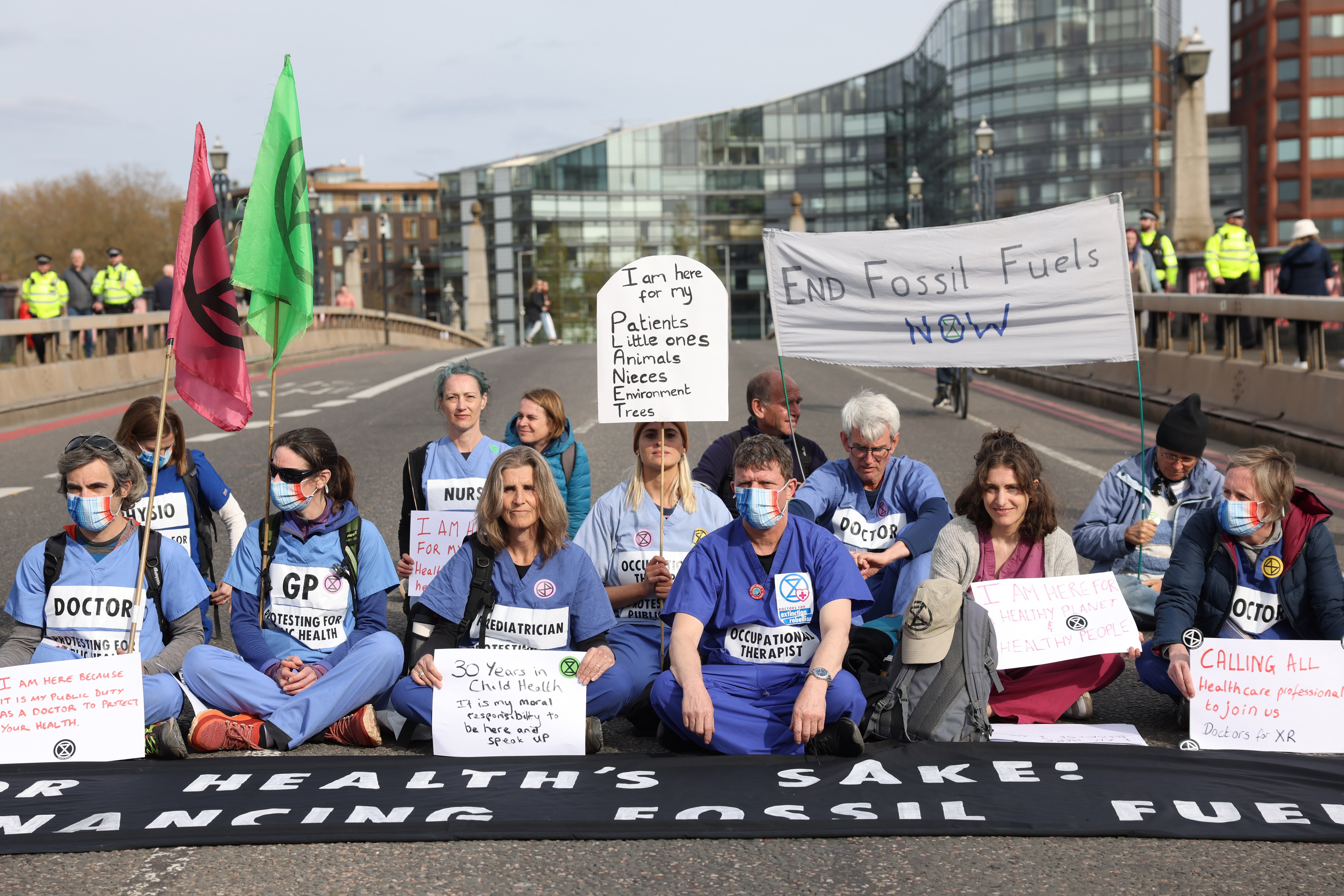Surge in public concern over environment and climate linked to rise in protest activity, research shows
Increasing fear over human impacts on the planet have soared alongside a rise in demonstrations

A rise in environmental activism has directly impacted public levels of concern about the climate crisis, keeping it high in the public consciousness, new research suggests.
Unlike global sea levels, concerns about climate breakdown and the state of the environment have not risen steadily as the problem has become more urgent. Instead, people’s fears in relation to human impacts on the world rise and fall in waves.
Current levels of concern in the UK are high. Shortly after the last general election, and before the Covid pandemic, 25 per cent of the public said the environment was the top issue facing the country – the highest level since 1990. More recently, in November last year, the same month the Cop26 negotiations took place in Glasgow, this figure stood at 40 per cent. That is compared to 2012, when fewer than 5 per cent of people rated climate and environment concerns as the most pressing issues.
Researchers trying to understand what drives these peaks and troughs in concern have examined the relationship between the public’s attitude to the environment and the influence which protests may have on heightening engagement and concern with this issue.
The study is "the first systematic study to show significant links between environmental protest and public salience".
The researchers analysed monthly trends in the importance of the environment to the British public between 2006-2019 and also considered various other factors which may influence levels of public attention on the issue.
These other factors included changing CO2 levels, natural disasters, and political events such as United Nations climate conferences.
Writing on the LSE website, Martha Kirby, from Nuffield College at the University of Oxford said these factors "may influence media coverage of climate change, but are not able to consistently predict levels of public attention to the issue, despite being linked with spikes in some instances."
She added that this indicates the effects of these factors do not have a big enough impact on public attention for concern to be sustained past the same month, or that they are not a consistent predictor over time.
However, she said her research revealed the spike in public attention on the environment in recent years can be linked to protest activity.
"Protest can be predicted by prior levels of public attention to the environment," said Ms Kirby, "but a surge in protest levels also leads to increased public attention in the following months".
"This effect is largely driven by recent protest, which indicates it played a role in recent rise in public concern."
The research also suggests that the sheer number of people involved in recent protests has a bigger impact on raising concerns about the environment than protesting methods.
Ms Kirby said: "Contrary to the supposed effectiveness of civil disobedience and disruption that Extinction Rebellion aim for, findings suggest it is the scale of recent protest, rather than its disruptiveness (measured by the number of arrests), that seems to have shaped public opinion."
The research article was published in the British Journal of Politics and International Relations.






Join our commenting forum
Join thought-provoking conversations, follow other Independent readers and see their replies
Comments